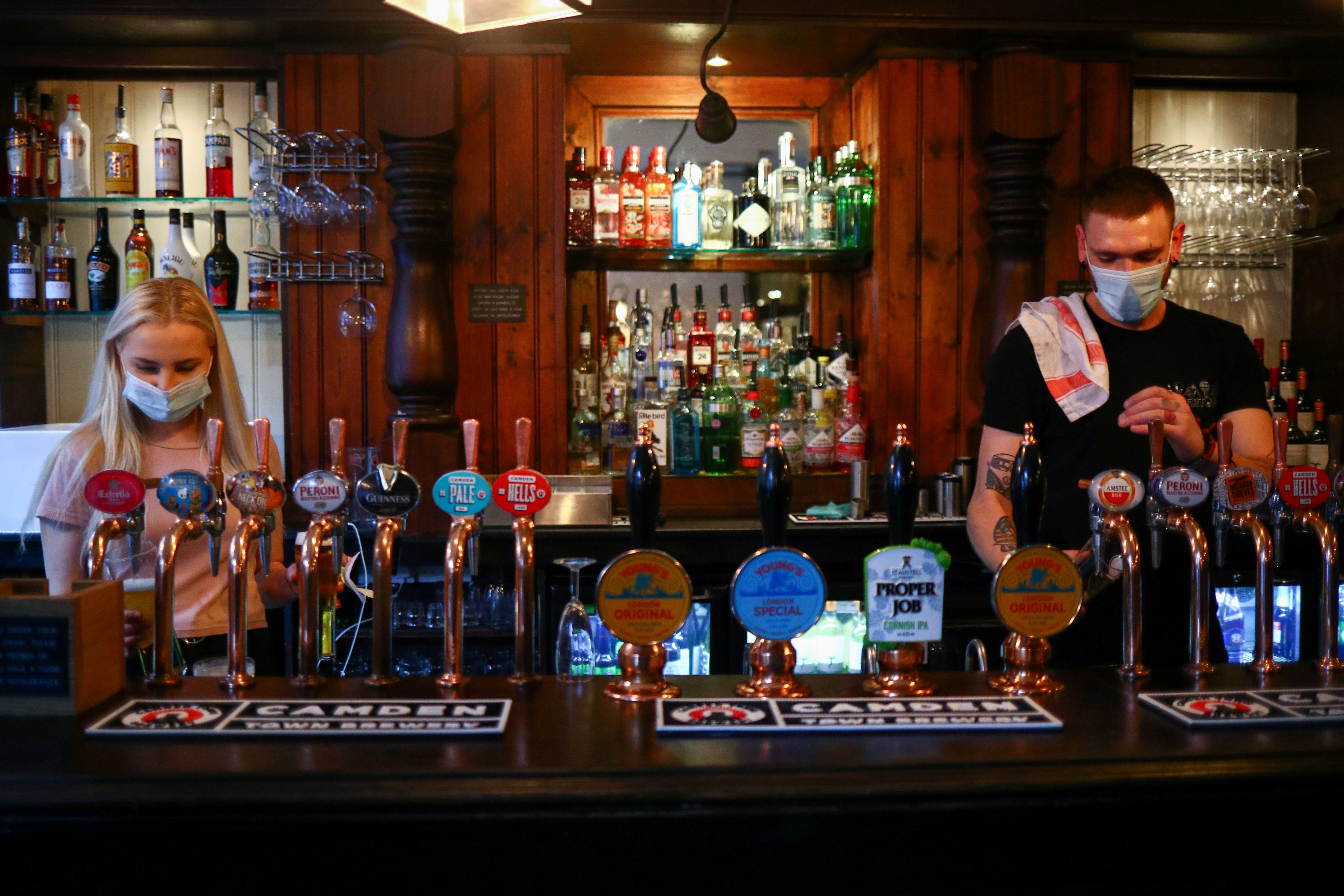Far more than 500,000 pub, bar and restaurant jobs to go this year, hospitality boss warns
Local lockdowns and 10pm curfew mean more than 560,000 job cuts in the industry before Christmas, says trade body

Your support helps us to tell the story
From reproductive rights to climate change to Big Tech, The Independent is on the ground when the story is developing. Whether it's investigating the financials of Elon Musk's pro-Trump PAC or producing our latest documentary, 'The A Word', which shines a light on the American women fighting for reproductive rights, we know how important it is to parse out the facts from the messaging.
At such a critical moment in US history, we need reporters on the ground. Your donation allows us to keep sending journalists to speak to both sides of the story.
The Independent is trusted by Americans across the entire political spectrum. And unlike many other quality news outlets, we choose not to lock Americans out of our reporting and analysis with paywalls. We believe quality journalism should be available to everyone, paid for by those who can afford it.
Your support makes all the difference.More than half a million pub, bar and restaurant workers will lose their jobs by the end of the year thanks to a 10pm curfew, local lockdowns and plunging consumer confidence, MPs have been warned.
Kate Nicholls, boss of the trade body UKHospitality, told MPs that around 900,000 hospitality staff remain on full furlough payments with the government scheme set to end in a little over three weeks.
UKHosptality had forecast 560,000 people in the industry would lose their jobs by the end of 2020 but Ms Nicholls said the figure is expected to be "far higher" after new restrictions were introduced in the last two weeks.
She told the Commons Treasury Committee on Tuesday: "We are doing that data again but we anticipate it will be far higher due to local restrictions, the national constraints on events, working from home and the curfew," she said.
The UK faces a cliff edge of unemployment at the end of the month, Ms Nicholls warned, as the furlough scheme which covers up to 60 per cent of an employee's wages is replaced by the job support scheme which covers just 22 per cent.
The new scheme also has a built-in incentive for employers to sack staff rather than reducing their hours and keeping them on the payroll.
Meanwhile, the 10pm curfew as well as fears about rising case numbers mean that trade for many bars and restaurants is less than half of normal levels, and as low as 20 to 30 per cent in city centres.
"We fear that unless there are amendments for those areas which are particularly hit, you won't avoid the cliff edge in October and we have got large numbers of redundancies that are forecast in October because of how the jobs support scheme is set up," Ms Nicholls said.
"There is a very real danger that we will lose large chunks of the economy – in hospitality we will have insolvent businesses, businesses going into administration and therefore that engine of growth for re-employing people will be lost for good.
"I think that's what we need to be focusing on to make sure we support viable jobs for the future. In our sector, those on full-time and part-time furlough are in viable jobs in the long term."
The government is under intense pressure to review both the curfew and the chancellor Rishi Sunak’s support measures amid growing fears they will condemn hundreds of thousands of people to joblessness, sucking spending out of the economy and deepening the impact of the pandemic.
Hospitality, events and the arts are among the industries which are effectively banned from operating at full capacity by government decree, yet many businesses and workers are denied adequate financial support.
Labour has demanded a review of the 10pm curfew while the owner of G-A-Y nightclub has launched a judicial review against the decision, claiming that it has no scientific basis and may in fact encourage the spread of Covid-19.
Rain Newton-Smith, chief economist at the CBI, was more positive about the chancellor's winter economy plan, hailing his new jobs plan as a "lifeline", but said sector-focused support could still be needed.
"At this next phase of the crisis we did need to see an evolution of the support and the jobs support scheme will help to save hundreds of thousands of jobs," she said.
"But we may need to look at how that scheme is designed over the coming weeks if a crisis escalates.
"For some sectors and businesses, we might need additional support."


Join our commenting forum
Join thought-provoking conversations, follow other Independent readers and see their replies
Comments